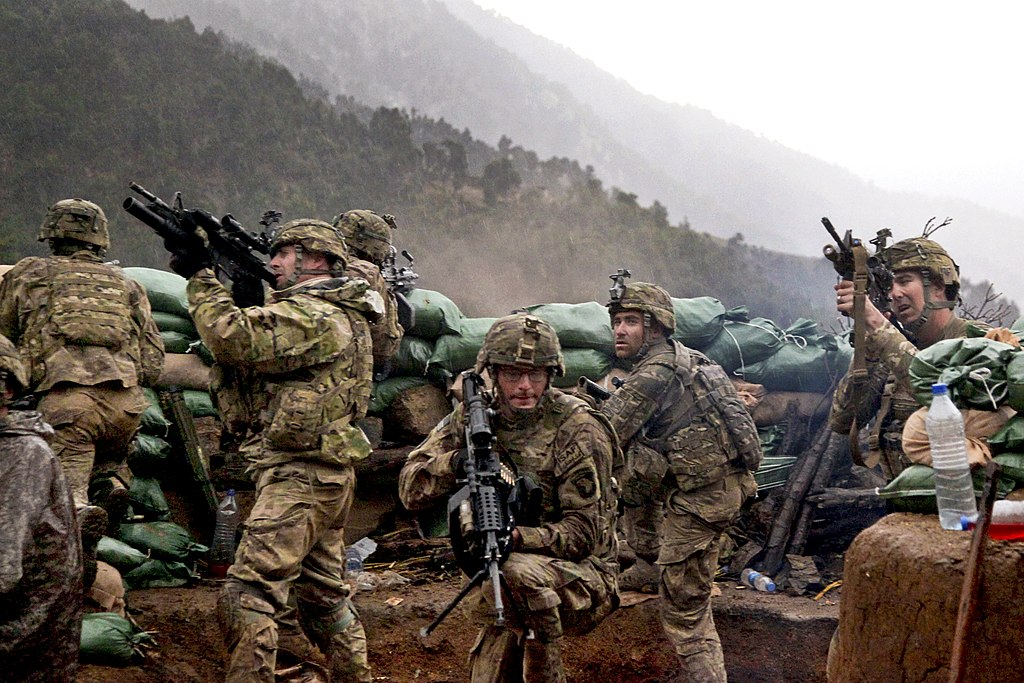U.S. President Biden announced a complete troop withdrawal from what he called the “forever war” in Afghanistan, by September 11. “Only the Afghans have the right and responsibility to lead their country,” Biden said from the same room in the White House where President George W. Bush announced the U.S. invasion of Afghanistan in October, 2001. In the two decades since, over 100,000 Afghan civilians have been killed, along with 45,000 members of the Afghan army and police and at least 3,500 U.S. and coalition troops.
Zaher Wahab knows well the impact of the invasion and occupation on his home country of Afghanistan. Wahab, a professor of education for decades, splits his time between the U.S. and Afghanistan. Since the 2001 invasion, he’s been helping rebuild Afghanistan’s shattered education system. “This invasion, occupation and bloodshed have destroyed the country, its economy, its institutions, its infrastructure, its education, its way of life, the relationships among the different ethnic groups,” Wahab said on the Democracy Now! news hour. “This occupation has been nothing short of a catastrophe.”
Wahab continued, “The United States and its allies should never have attacked and occupied Afghanistan. It was wrong. It was illegal…the war may end for the United States, but it will intensify for Afghanistan. That is why we need a UN peacekeeping force immediately.”
There are no plans yet for UN peacekeepers, and a central demand of the Taliban in the ongoing peace negotiations is a complete withdrawal of foreign forces, by May 1, the date set by president Trump. Biden’s delayed troop withdrawal may start then, but will it be as complete as promised?
“It doesn’t include the thousands who are part of U.S. special operation and NATO special operation teams, CIA teams, as well as the dozens of squadrons of attack aircraft and bombers, whether they be manned or drone, that are in the area,” Matthew Hoh said on Democracy Now! Hoh, a senior fellow with the Center for International Policy, was a marine in the occupation of Iraq, followed by a State Department position in Afghanistan. He resigned in 2009 in protest of president Obama’s escalation of the war. “The potential for the United States to remain involved militarily is quite high, even if all 3,500 acknowledged U.S. troops are withdrawn, as well as the NATO troops.”
Hoh continued, on Democracy Now!, “The devastation on the Afghan people is hard to imagine…there have been millions and millions of refugees. Seventy per centof Afghans subsist on a dollar a day. There is no industry in Afghanistan to speak of.”
The most recent estimate of the financial cost to the U.S. of the war in Afghanistan over the past 20 years, from Brown University’s Cost of War project, is $2.3 trillion — which could have built a lot of infrastructure, in Afghanistan and in the United States. Instead, the U.S. bought weapons, built soon-to-be-abandoned bases, and endlessly cycled troops through repeated deployments. Care for injured veterans and debt on the money borrowed to wage war will continue to cost U.S. taxpayers for decades to come. This doesn’t count the billions spent arming the Afghan mujahideen to fight the invading Soviet army during the 1980s — arms and training turned against the United States and its allies decades later.
On September 14, 2001, days after the Al Qaeda attacks on the U.S., Congresswoman Barbara Lee of Oakland spoke on the House floor, opposing military action against Afghanistan. “Let us not become the evil we deplore,” she said, before casting the lone vote against the Authorization for Use of Military Force (or AUMF, which remains in effect to this day). This week, Lee applauded Biden’s announced troop withdrawal, adding, “This is the result of decades of hard work by activists, advocates, and members of Congress committed to ending our forever wars…We must utilize this momentum to rein in executive war powers…and put that power back in the hands of Congress and the people.”
Lee is also leading a group of 50 House members who sent a letter to President Biden, urging him to slash the Pentagon budget. “As we face a global pandemic and unprecedented economic crisis, the needs of American families far outweigh the need to continue feeding our bloated military defence budget,” she said in a statement.
Ending the war in Afghanistan should be a beginning, accompanied immediately by reparations to the Afghan people. Biden should also end U.S. military interventions elsewhere, starting with Iraq, and cut the military budget. After decades of war, let’s give peace a chance.
Amy Goodman is the host of Democracy Now!, a daily international TV/radio news hour airing on more than 1,300 stations. She is the co-author, with Denis Moynihan, of The Silenced Majority, a New York Times bestseller. This column originally appeared on Democracy Now!
Image credit: Cameron Boyd/ The U.S. Army/Flickr



